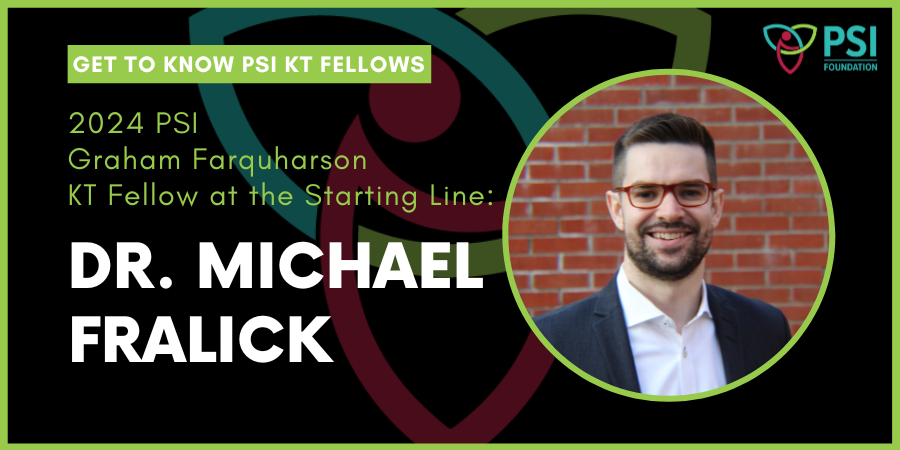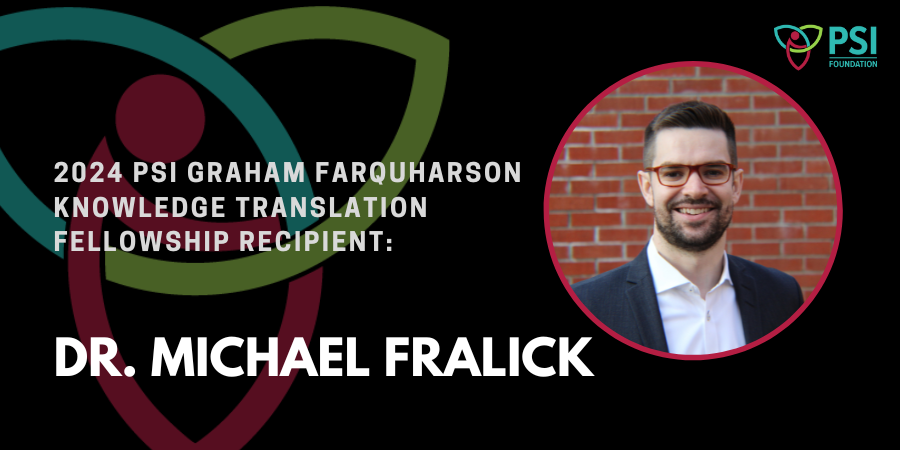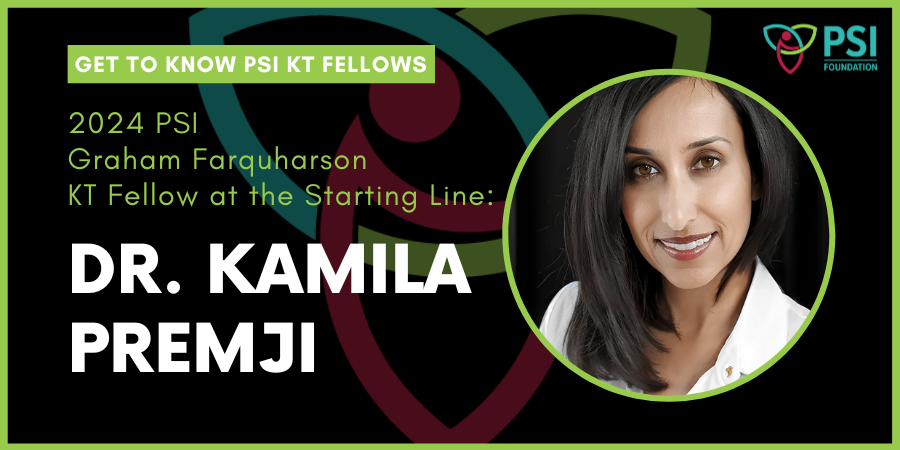Upon receiving their approval letters and sharing the exciting news of the award with their community, the PSI Knowledge Translation (KT) Fellows begin preparing to get settled in their place at the starting line. As they embark on their KT Fellowship journey, we asked them few questions to know them beyond their recipient biographies, as well as some notes they could pass on to future applicants.
Please use 3 words to describe how you feel as you begin your KT Fellowship.
Motivated, focused, and excited.
Why did you apply for the PSI KT Fellowship? How does this award align with your current research and career goals?
I have been researching novel diabetes medications and their use in the population since 2016. The journey began when I cared for a patient who had a suspected drug reaction to a new class of diabetes medications called sodium glucose co-transporter 2 (SGLT2) inhibitors. The patient had been hospitalized with diabetic ketoacidosis. During my subsequent Masters of Science degree, I conducted a study to assess whether this adverse event was related to the patient’s use of an SGLT2 inhibitor; the resultant work was among the first to confirm that SGLT2 inhibitors are indeed associated with an increased risk of diabetic ketoacidosis (New Eng J Med, 2017). The experience motivated me to complete a PhD in Clinical Epidemiology, using both traditional statistical techniques and machine learning to better understand the safety and effectiveness of SGLT2 inhibitors. With the advent of GLP1 agonists, I’ve expanded my research program to include those medications as well.
As a general internist who sees many patients with chronic diseases like diabetes, heart failure, obesity, and chronic kidney disease, the existence of these SGLT2 inhibitors and GLP1 agonists is a revelation. The slow uptake, however, is challenging. It is hard to know exactly why uptake has been so slow, but I think it is related to prescribing inertia and a lack of realisation of how effective these medications truly are. This is where knowledge translation comes in, to bring research “from bench to bedside.”
Part of my research program is exploring what influences doctors’ decisions to prescribe these medications. We are looking at different factors that might influence decision-making, such as patient age, sex, and other health conditions, as well as hospital-level factors, such as hospital location. We are also continuing our work to assess the medications’ advantages and risks. Using the results of these studies, we can develop evidence-based strategies that will ensure patients are receiving medications that have real benefits.
Moreover, this fellowship aligns with my career aspirations to become a leader in translating medical research into practice and policy. The fellowship supports my professional development goals, such as enhancing my skills in qualitative research and understanding health policy decision-making, which are vital for advancing my career as a research-informed clinician.
I strongly believe that a dedicated knowledge translation program—informed by stakeholder perspectives, policy process insights, behavioural science, and diverse stakeholder support—can have a meaningful impact on the prescribing of these novel diabetes medications, and consequently, a meaningful impact on the lives of millions of Ontarians living with chronic diseases like diabetes, heart failure, obesity, and chronic kidney disease. As a Clinician Scientist, that is my ultimate aim: to improve the lives of patients.
What are 3 to 5 general tips and notes you would pass on to those preparing their KT Fellowship application?
Here are a few general tips that I believe may help applicants stand out:
- Emphasize Knowledge Translation: Clearly articulate how your proposed research aligns with the fundamental purpose of the Fellowship (i.e., knowledge translation). Detail specific outcomes and impacts that your research aims to achieve in translating knowledge into clinical practice or policy while clearly describing how you will monitor and evaluate the effectiveness of your KT initiatives.
- Demonstrate Impact and Feasibility: Showcase your ability to conduct high-impact research by including evidence of past successes and explaining how your current project will build on these foundations. It is important to illustrate not only the potential impact of your research but also its feasibility within the timeline and budget constraints of the Fellowship.
- Highlight Collaboration and Support: Emphasize the support you have from your institution and any collaborating partners. It may be a good idea to include letters of support from supervisors or mentors who are recognized in your academic community, outlining their commitment to providing you with the necessary research infrastructure and guidance.



